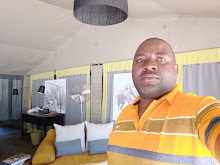 |
By Elizabeth Marealle
President Dr Samia Suluhu Hassan will be the guest of honor during a conference to mark the 36th anniversary of the Tanzania Media Women Association (TAMWA).
After addressing the gathering, at the two-day event to be held in Dar es Salaam from 28 through 29, November this year, the president will also launch a special project by TAMWA.
There were 13 of us female journalist who formed the Tanzania Media Women Association (TAMWA) and worked through thick and thin to ensure it's success. We volunteered and contributed financially towards our goals.
At first we met in the living room of one of the founding members, the late Nelly Kidela.
Mark you it was after the UN Decade for Women and some of us took part in some of the events before Nairobi conference or at end of UN decade Conference in Beijing.
Therefore, the TAMWA we wanted was not inward looking. We focused on what was happening in the community at large. The vision was to have: A Peaceful Tanzanian society which respects human rights from a gender perspective.
Formed 36 years ago, the Association is still going strong. Currently there are more than 200 active members. Now TAMWA is a household name in playing its role in the fight for human rights through the media.
For almost 10 years TAMWA lobbying led to enacting by the United Republic of Tanzania Parliament of: "The Sexual Offences Special Provisions Act of 1998" (SOPSA). The objective is to safeguard personal integrity, dignity, liberty and security
of women and children.
TAMWA launched its own newsletter "Sauti ya Siti" that carried investigative stories written by both men and women journalists and researchers. As more people saw the impact: individuals, institutions, organisations and the Government supported TAMWA in its endeavor as it exposed or pointed at human rights and gender abuse.
In Zanzibar if a girl became pregnant she was imprisoned and denied going back to school under a Law known as: "Sheria ya Wanawali ya mwaka 1985". (Wanamwali means virgins).
With TAMWA efforts and lobbying, Her Excellency, President Dr Samia Suluhu Hasan, who was the then Minister responsible for Gender in Zanzibar, did what was necessary and the Act was repelled.
Sensitization through the media and lobbying was also done to support women who aspired for elective political posts. After such campaigns in collaboration with other stakeholders, more women are in political and leadership roles.
Lushoto plague was a threat in 1990. Unlike men many women and children died of plague.
A study during a media campaign launched by TAMWA showed that women and children slept on the floor hence became the target of fleas from an infestation of rats in the area at that time. The suffering continued for a long time.
When TAMWA held a press conference to reveal the outcomes of its study, the media coverage led everyone into action. After a few years of intervention; plague is now history in Lushoto.
TAMWA was not alone. It was supported by the Government in many ways. All public institutions and stakeholders in the public and private sector took appropriate steps when there was an issue raised by TAMWA. NGOs both local and foreign, institutions and leaders at different levels lended their support to the Association. In all these campaigns TAMWA used their pens and microphones to carryout investigative journalism on human rights abuse against women and children. What followed next after the the release of the report, was implemented by Governmental and non Governmental organs.
So far the Association has implemented 145 projects that have touched so many lives in Tanzania.


Post a Comment